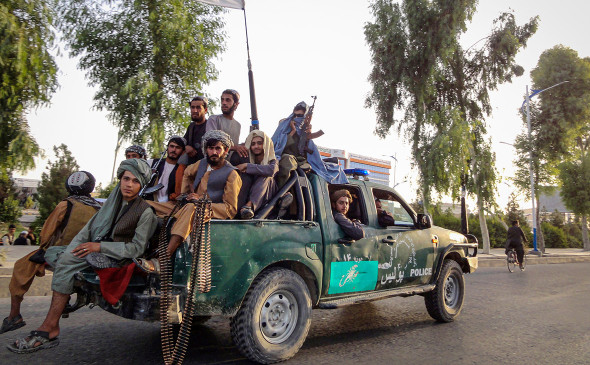RA’s Daily Russia News Blast – August 16, 2021

Today in Russia: Russia to partially evacuate staff from Kabul embassy; Russia in talks with the Taliban; Moscow envoy demands that ex-President Ashraf Ghani be “punished” for leaving his country, denied landing rights in Tajikistan; Likely winners in September Duma elections; US to review Russia’s status as ‘market economy’
Partially leaving. Russia announced that it would partially evacuate staff from its embassy in Kabul after the Taliban controlled Afghanistan’s capital city. Zamir Kabulov, the presidential envoy to Afghanistan said today, “We have a relatively large embassy in Afghanistan, it’s about 100 people altogether. Some of our employees will be sent on vacation or evacuated in some other way so as not to create too much of a presence,” The decision comes a day after Kabulov insisted that Russia would not be evacuating staff from its embassy.
Talking with the Taliban. Russia is in talks with the Taliban and said it would decide on recognizing the Taliban based “on the conduct of the new authorities.” Kabulov said that Russian officials and the Taliban are currently in communication: “They are talking in Kabul. All contacts are being made there at the moment. The embassy is dealing with this.”
Regretful force, but still talking. Foreign Minister Sergei Lavrov said on Friday that Russia regrets the Taliban’s decision to take over the country by force, adding that “We are talking with all the more or less significant political forces in Afghanistan: both with the government and with the Taliban and with the representatives of Uzbeks, Tajiks, with everyone. We see how difficult it is for the Afghan society to develop consensus.” However, events over the weekend dramatically changed the calculus for all players, as the Taliban solidified control over the capital and the US and its NATO partners began a chaotic and hasty evacuation of its personnel.
Just stay out of our backyard. Dmitry Trenin of Carnegie Moscow tweeted on Sunday that Russia is maintaining contact with the Taliban while carrying out military exercises with Uzbekistan and Tajikistan, noting that Russia’s primary concern is preventing spillover from Afghanistan into Central Asia.
Coward! Russian presidential envoy to Afghanistan Zamir Kabulov railed against Afghanistan’s fleeing ex-president Ashraf Ghani, declaring that he fled “in the most shameful way,” and “was elected dubiously, ruled badly and ended shamefully” and should be punished accordingly. Ghani initially fled to Tajikistan, but some sources have suggested that his plane was denied landing rights and was forced to continue onwards to Oman, although this has not been confirmed.
Winners and losers. Meduza wrote about the upcoming Duma elections scheduled to begin on September 17 and carried out in a three-day window. This year, there was a complete overhaul to the electoral process, moving from a proportional representation system to to a hybrid system where 225 seats are based on party lists and 225 will be handed to single-seat constituencies. Meduza wrote, “Using party lists, opinion polls, and turnout estimates in each region across the country, it’s relatively easy to predict the results...As in 2016, this year’s ballots will probably list 14 parties. Of these, the parties that pass the five-percent electoral threshold will win mandates. Four parties are likely to break the threshold: United Russia, the Communist Party (KPRF), the Liberal Democrats (LDPR), and A Just Russia (which has recently merged with two smaller parties: For Truth and Patriots of Russia).”
Market economy? “The U.S. has opened a review into its designation of Russia as a “market economy” in a technical move which could further complicate already tense trade relations between the two countries.Washington has treated Russia as a market economy since 2002, when it awarded the designation as a recognition of Russia’s economic and political transformation during the 1990s.
PHOTO: The Taliban took control of Kabul on Sunday. Moscow is taking a wait-and-see approach to recognition of the new regime while maintaining lines of communication with the group (AP).











